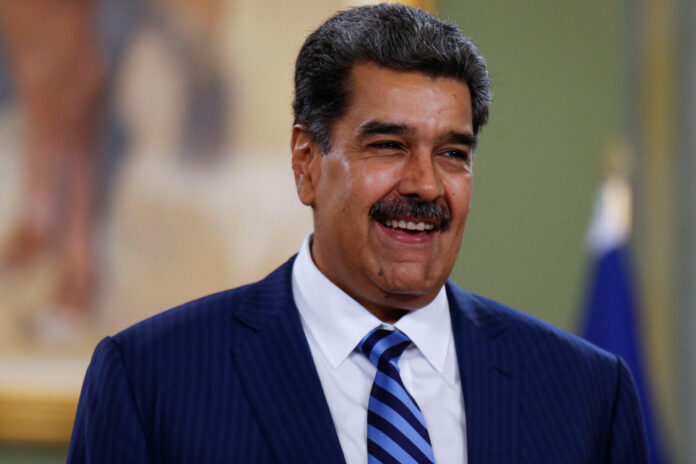(Beijing) Venezuelan President Nicolas Maduro arrived in China on Friday, his first visit since 2018 as the Latin American country seeks support for its crisis-hit economy.
“We have arrived in Shenzhen, China, ready for what will be a historic visit to strengthen cooperative ties and build a new world order,” the socialist leader wrote on X (ex-Twitter).
” Stay tuned ! Good news will rain for the Venezuelan people,” he added, as the country’s southern metropolis was hit by heavy rainfall.
Earlier in the day, a spokeswoman for the Chinese ministry, Hua Chunying, had announced the arrival of the Venezuelan president “on a state visit to China from September 8 to 14”.
The socialist leader will also travel to other “friendly countries”, indicated, during a parliamentary session to authorize this trip, the President of the Venezuelan Parliament Jorge Rodriguez, who did not specify which ones.
“Mutual political trust between the two countries is becoming very solid and cooperation in many areas is continuously deepening,” Mao Ning, spokesperson for the Ministry of Foreign Affairs, commented to the press.
Beijing has close relations with internationally isolated President Maduro and is one of the main creditors of Venezuela, whose GDP has contracted by 80% in 10 years as a result of the economic crisis.
Venezuelan Vice President Delcy Rodriguez visited Shanghai and Beijing this week.
She met with Chinese Foreign Minister Wang Yi, who praised the “unwavering friendship” between the two countries.
The visit aimed to negotiate investments from Beijing in the oil sector, vital for the Venezuelan economy, as well as a possible joint venture between oil groups from the two countries, according to the financial news agency Bloomberg.
It was an “extraordinary working meeting during which we strengthened our bilateral relations” as well as “the expansion of strategic cooperation”, greeted Delcy Rodriguez on the social network X (formerly Twitter).
On this same network, Nicolas Maduro Guerra, deputy and son of the president and also in China, said he accompanied Ms. Rodriguez for a meeting with the former Brazilian president Dilma Rousseff, president of the New Development Bank.
The opportunity, according to him, to “confirm Venezuela’s desire to integrate” the bloc of emerging Brics countries (Brazil, Russia, India, China, South Africa).
Caracas is seeking support from Beijing to revive its economy, hit by one of the worst inflations in the world (436% year-on-year in May).
According to estimates at the end of July from the Venezuelan Financial Observatory (OVF), a reference organization in the absence of official figures, the Venezuelan economy contracted by 7% in the first half of the year compared to the same period in 2022 .
President Maduro’s last visit to China – which was his tenth trip to the country – dates back to 2018. He then praised his Chinese counterpart’s vision of a “common destiny for humanity”.
A fierce critic of the United States, he also praised China as a country “without a hegemonic empire that blackmails, dominates and attacks the peoples of the world”.
Xi Jinping, for his part, visited Venezuela in 2014.
China lent Venezuela $50 billion in the 2010s, with Caracas subsequently repaying its debt with deliveries of oil, of which it has the world’s largest reserves.
The Latin American country still owed Beijing $20 billion in 2018.
President Maduro’s visit comes as leaders of the world’s major economies gather in India this weekend for a G20 summit, from which Chinese President Xi Jinping will most likely be absent.
Mr. Maduro, successor to Hugo Chavez, was re-elected in 2018 in a vote boycotted by the opposition and not recognized by many countries, including the United States and France.
In 2019, Washington, as well as part of the international community, recognized Juan Guaidó, opposition leader who had just proclaimed himself interim president. Then-President Donald Trump imposed numerous sanctions on Caracas.
The opposition ended this interim presidency in January, believing that it had not fulfilled its objectives of political change.
US President Joe Biden, who succeeded Trump, maintains he does not recognize Maduro as president and has left the majority of sanctions in place.
His administration, however, approved an oil project by the American group Chevron in Venezuela last year and said it was willing to ease pressure on the country in exchange for efforts by the Venezuelan government.
Venezuela will hold its next presidential election in 2024.















